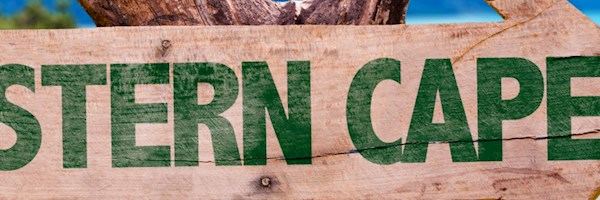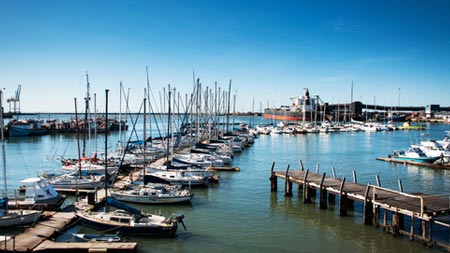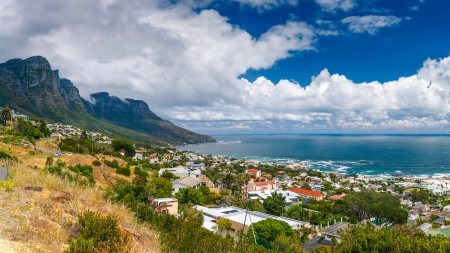Investing in property in Grahamstown is generally a good bet as the Eastern Cape housing market continues to show signs of a promising future. However, taking that first or second step on the property ladder is no simple feat. You have to dig a little deeper into the market to uncover the sweet spots and get yourself into the home that fits you. So here is our Grahamstown real estate guide for anyone thinking of making the move to homeownership or relocating to the scenic City of Saints.
Demographics and market stock
Grahamstown offers many different types of properties to suit just about any homeowner or tenant. According to a report by Lightstone Properties, currently the main housing categories are freehold (12756 or 92% of the market stock), sectional title units (832 or 6.03%), and freeholds in estates (209 or 1.51%). The town today is an agglomeration of architectural styles and materials, from chic developments reflecting modern lifestyles to homes that date back to the Victorian era. The property sector is also heavily influenced by the presence of many educational institutions, including Rhodes University. There is a growing demand for student accommodation, which makes the buy-to-let market a pretty attractive option as reflected in the stats.
Looking at the generational trends among buyers and sellers in Grahamstown between December 2017 to November 2018, the report reveals that among recent buyers, 5% are pensioners, 19% are mature, 35% are young adults, and 40% are middle-aged. That millennials represent the second highest percentage of buyers is certainly a positive indication that first-time buyers have easier access to investing in property.
The number of sales for the period show that matured adults (between 50 and 64 years) made up 39% of sellers, followed by pensioners (65 and older) at 31%. The dominance of these age groups in the category is likely the result of the need to move to a retirement home or to their adult children, freeing up properties for second-steppers who are struggling to make the leap to a bigger property.
Looking at the median years of residence for owner-occupied homes, it seems that owners spend more time holding onto their primary residences. Among existing owners, 82% lived in their homes for 11 years and more, 5% owned their homes for 8 - 10 years, 5% for 5-7 years, and 8% for less than five years. Among recent sellers, 44% had lived there for 11 years and more, 13% for 8- 10 years, 19% for 5-7 years, and 24% for less than five years.
Repeat sales outweigh first-time property transfers
It has been a quiet period for first-time property sales between December 2017 to November 2018, with the only one transfer on developed property occurring in this period. The transfer was for a sectional title with a total value of R675 000. The transaction statistics for the repeat sales category were stronger with a total of 203 properties sold for the period. Repeat sales included developed property and land. For the period, 14 properties in estates were sold with a total value of R20 250 000, 114 freehold properties with a total value of R104 474 000 were sold, and 56 sectional schemes with a total value of R50 282 000 were sold. Land sales included two plots in estates with a value of R1 265 000, and 17 freehold plots for R13 326 000. The total transfers for the period amounted to R189 597 000.
View homes for sale in Grahamstown here
House price growth up, number of registrations down
Tracing market activity over a ten-year period, from 2008 to 2018, house prices across Grahamstown have been slowing modest growth since the start of the recession. The median price of a freehold property was R665 000 in 2008, increasing to R872 000 in 2018. Last year’s figure is 3.11% below this category’s early 2017 all-time high of R900 000. remained stable for most of the decade, starting at
Sectional schemes have been growing at a fairly broad range of between 7% and 11% for the first half of the decade, from an average of R628 000 in 2008 to R750 000 in 2013. In 2017, it dipped to R640 000, it’s second-lowest level since 2008, but increased by 19.53% in 2018, with the average house in Grahamstown costing R765 000.
Vacant land posted the biggest growth for the period, averaging R150 000 in 2008, and peaking at R600 000, an astonishing growth of 300% despite uncertainty over land reforms.
There has been a slowdown in the number of transactions over the last decade, with the number of registrations for freehold properties falling from 239 in 2008 to 118 in 2018. The number of registrations for sectional title schemes peaked between 2010 (121 transfers) and 2012 (166) but plummeted to its lowest levels in 2017 and 2018 at 55 transfers each year.
Fewer homeowners lost their homes
Data for the past eighteen years show that fewer Grahamstown homeowners surrendered their houses to lenders. The number of homes in execution was higher in 2001 (39) and 2003 (45) than during the recession (five homes were repossessed in 2008). In the wake of the financial crisis, property in execution numbers mostly stayed the 11 and below mark. It reached an all-time low for the period of just one repossessed home in 2018, signalling that homeowners in Grahamstown are beginning to enjoy a sense of financial stability






